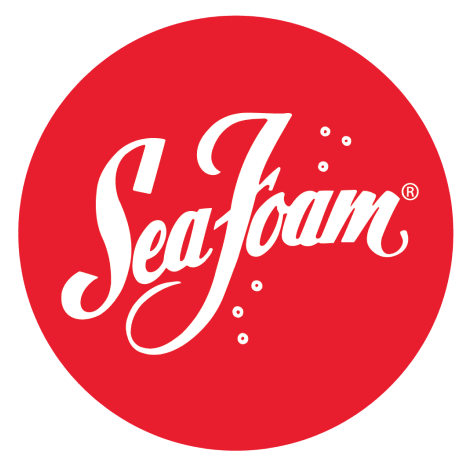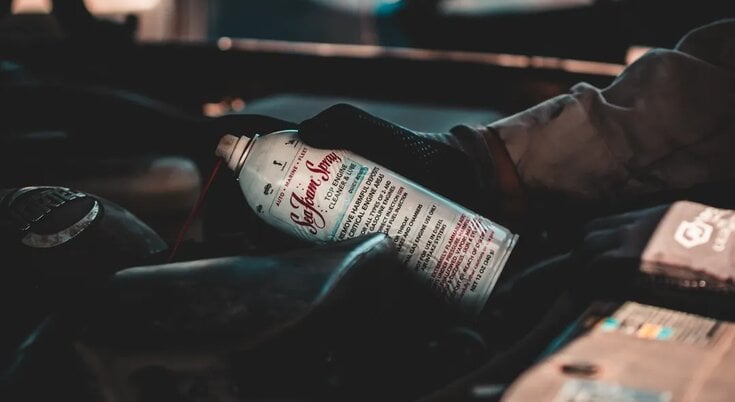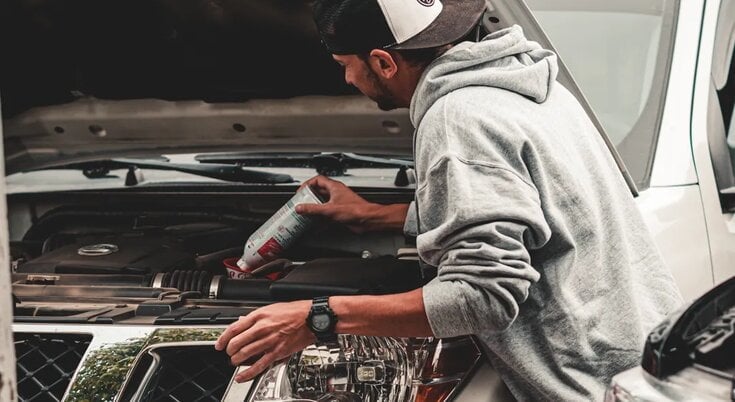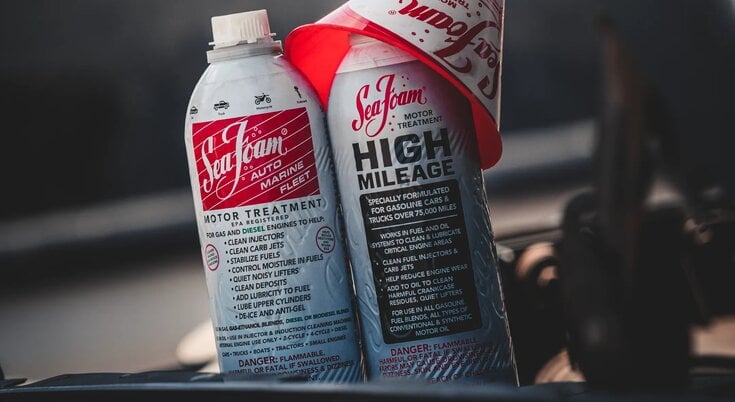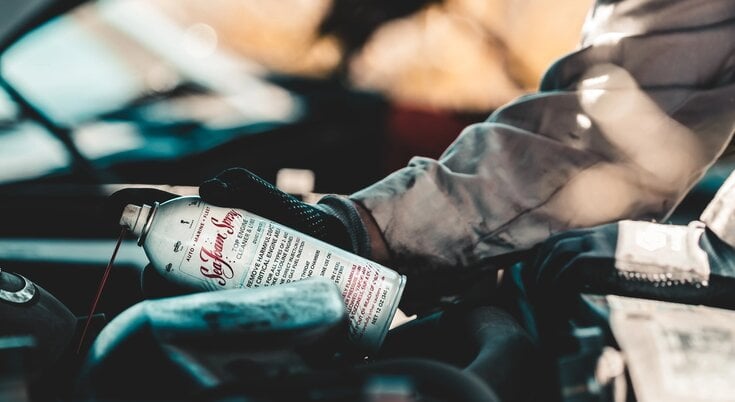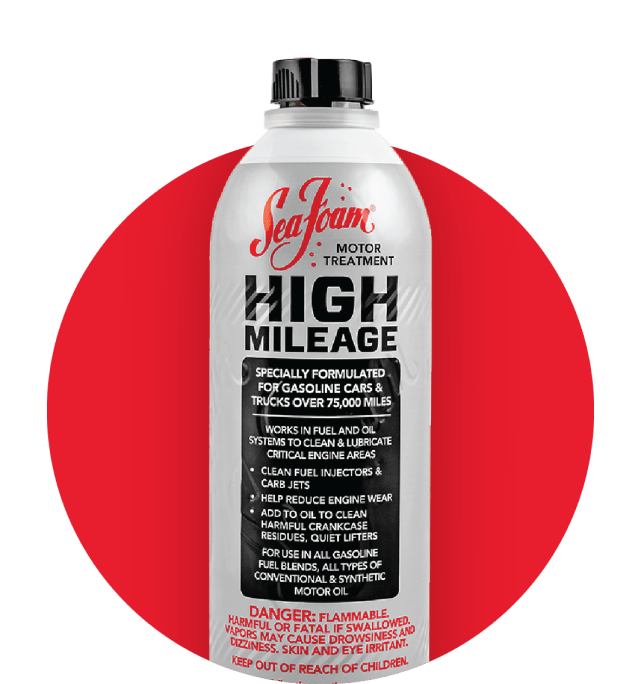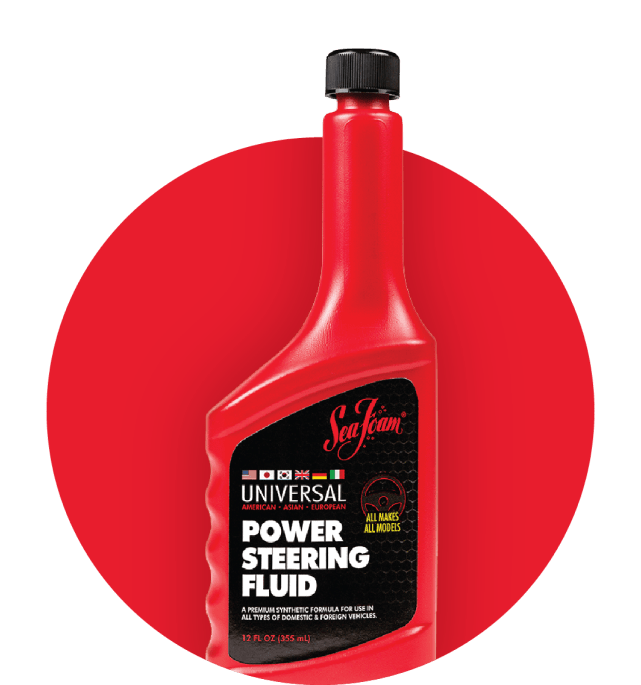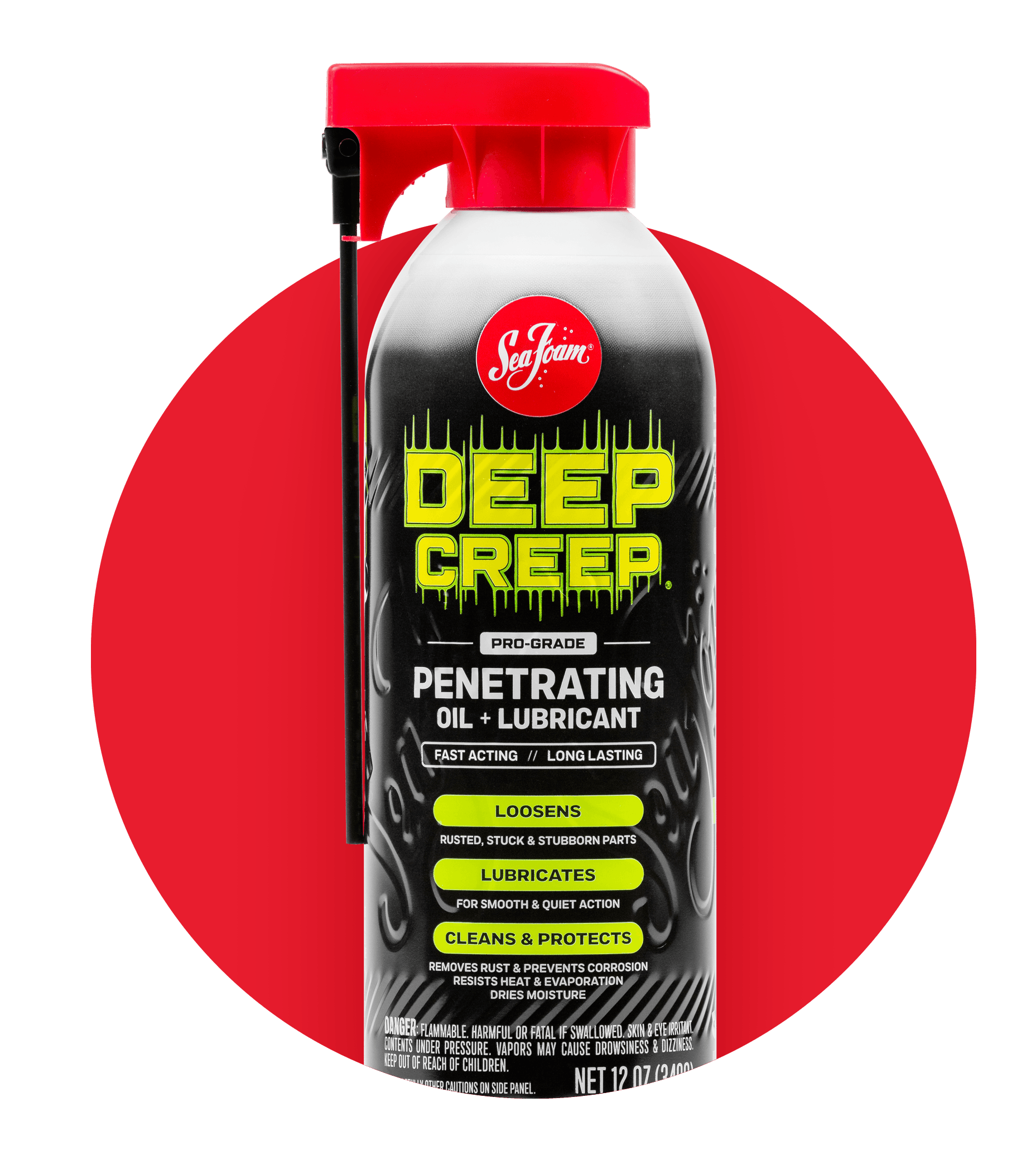BASIC MAINTENANCE
THE 7 MOST COMMON ENGINE PROBLEMS AND HOW TO AVOID THEM
one of the keys to basic maintenance is understanding petroleum gum and varnish, and how harmful deposits form.
TROUBLESHOOTING
ENGINE PROBLEMS
- FUEL FILTER ($$). Fuel filters should be replaced every year (diesel) or 2 years (gas engines). Is your fuel filter clean and new?
- IGNITION COIL ($$), SPARK PLUGS ($$), AND PLUG WIRES ($$). If your car or truck has over 100,000 miles, have you replaced any of your ignition parts?
- FUEL PUMP ($$$). A fuel pump can last over 200,000 miles. Checking fuses, voltage, or testing fuel pressure are low cost ways keep tabs on your fuel pump. A clogged fuel filter will wear out a fuel pump prematurely.
- AIR FILTER ($$). An air filter should last 15,000 to 30,000 miles. Is your air filter clean and new?
- CHECK ENGINE LIGHT (FREE). Most auto parts stores are happy to read your engine code for free – just ask!
- OIL RESTRICTIONS & OIL BURNING. Cleaning away oil restrictions can be as easy as pouring half a can of Sea Foam into your oil crankcase every interval.
- DIRTY INTAKE VALVES ($). Don’t let carbon deposits form on your intake valves. Check out our Sea Foam Spray pages on how you DON’T need to be an expert to clean your own intake valves.
- EXCESS CARBON BUILDUP ($). Carbon deposits in the chamber or on pistons will cause pinging, predetonation, and loss of power. Remember that Sea Foam Spray is the fast and easy way to clean carbon!
- DIRTY FUEL INJECTORS ($). Did you know that Sea Foam Motor Treatment works to keep fuel injectors clean and trouble-free?
- GAS CAP TIGHT? (FREE). Ever get a check engine light because you didn’t turn your gas cap tight? Don’t panic! (Everyone forgets.)
- LOW TIRE PRESSURE (FREE). If you notice a drop in MPG, check your tire pressure first before you start looking into other causes.
- VACUUM/AIR LEAKS (FREE). Lots of do-it-yourself methods on how to find a vacuum leak. Check out YouTube.
Here are seven common engine problems that millions of people deal with every day.
Hard starting means that your engine no longer starts easily on the first turn of the key, or you need to pull a small engine start rope more than 2 or 3 times. From there it only gets worse. A healthy engine fires and starts right away.
Common causes: clogged fuel filter, dirty fuel injectors, dirty carburetor, failing ignition parts (coil, spark plugs, plug wires), leaking fuel pressure regulator. Read more here.
Idle is the rate an engine runs while in park or without pressing the gas pedal or throttle. Most car and truck engines idle steady at 600 to 1200 RPM. You’ll know you have a rough idle when your engine feels shaky, sounds unsteady, or gives a sense of being out of rhythm. A healthy engine idles smooth and quiet.
Common causes: dirty fuel injectors, dirty carburetor, bad spark plug or plug wire, vacuum/air leak. Read more here.
A stall is when an engine dies out when it’s supposed to be running. Even though the engine may start back up again, stalling usually means that the engine is not getting enough fuel or air flow. A healthy engine never stalls.
Common causes: clogged fuel filter, dirty fuel injectors, dirty carburetor, dirty air filter, bad spark plugs or coil. Read more here.
An engine with a hesitation problem will lag, stutter, or stumble when you press down on the gas pedal or throttle. Hesitation can be any delayed power response when you need to accelerate.
Common causes: clogged fuel filter, dirty fuel injectors, failing ignition parts (spark plugs or plug wires), vacuum/air leak, weak fuel pump, bad fuel
Loss of power describes an engine that still runs but does not work as hard as it should. Power loss is usually noticed when going up hills.
Common causes: clogged fuel filter, dirty fuel injectors, dirty carburetor, dirty air filter, weak fuel pump, failing ignition parts (coil, spark plugs, plug wires). Read more here.
Are you noticing a drop in fuel economy? Poor fuel mileage means your car or truck is not running as efficiently as it could.
Common causes: dirty fuel injectors, low tire pressure, dirty air filter, bad spark plugs or misfires, using the wrong motor oil, chamber deposits (predetonation, pings). Read more here.
Fuel degrades when exposed to oxygen (which makes it unstable). Gasoline suffers from the evaporation of light ignition vapors necessary for healthy combustion. If your fuel is old or came from an unreliable source, it might be causing your engine to run poorly.
Common causes: engines that sit too long (varnish), water contamination, contaminated gas station fuel, vented fuel tanks or storage containers that sit too long
HOW sea foam prevents common engine problems
#seafoamworks
related
products
For motors of all shapes and sizes.
